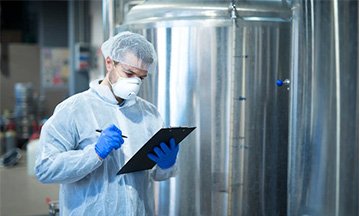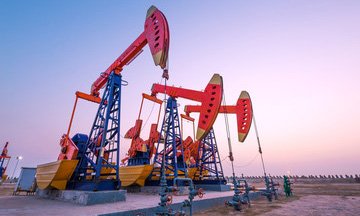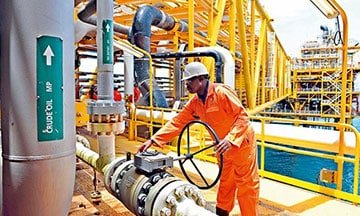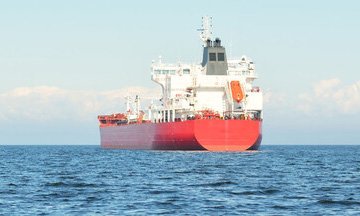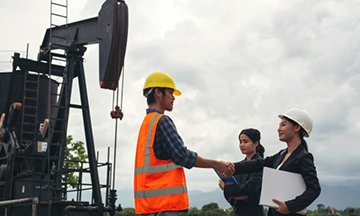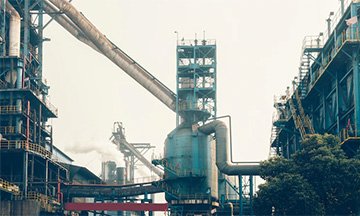Petrochemical Engineering Training Course
| Date | Format | Duration | Fees | |
|---|---|---|---|---|
| 05 May - 09 May, 2024 | Live Online | 5 Days | $2250 | Register |
| 24 Jun - 28 Jun, 2024 | Live Online | 5 Days | $2250 | Register |
| 11 Aug - 15 Aug, 2024 | Live Online | 5 Days | $2250 | Register |
| 29 Sep - 03 Oct, 2024 | Live Online | 5 Days | $2250 | Register |
| 28 Oct - 01 Nov, 2024 | Live Online | 5 Days | $2250 | Register |
| 09 Dec - 13 Dec, 2024 | Live Online | 5 Days | $2250 | Register |
| Date | Venue | Duration | Fees | |
|---|---|---|---|---|
| 27 May - 31 May, 2024 | Dubai | 5 Days | $4750 | Register |
| 10 Jun - 14 Jun, 2024 | Dubai | 5 Days | $4750 | Register |
| 08 Jul - 12 Jul, 2024 | Dubai | 5 Days | $4750 | Register |
| 25 Aug - 29 Aug, 2024 | Riyadh | 5 Days | $4950 | Register |
| 26 Aug - 30 Aug, 2024 | Dubai | 5 Days | $4750 | Register |
| 15 Sep - 19 Sep, 2024 | Riyadh | 5 Days | $4950 | Register |
| 23 Sep - 27 Sep, 2024 | Dubai | 5 Days | $4750 | Register |
| 14 Oct - 18 Oct, 2024 | Dubai | 5 Days | $4750 | Register |
| 11 Nov - 15 Nov, 2024 | Dubai | 5 Days | $4750 | Register |
| 09 Dec - 13 Dec, 2024 | Dubai | 5 Days | $4750 | Register |
| 23 Dec - 27 Dec, 2024 | Athens | 5 Days | $5695 | Register |
Course Overview
What does a petrochemical engineer do?
The petrochemical engineering course will help train technical professionals who want to major in the petroleum field. It will offer insights to those who want an understanding of chemical processes, how plants are built and run, and petrochemical economics.
The course will deeply examine and explain the intricacies of acquiring and refining petrochemicals. Each Process will get broken down into core building blocks with an elaborate explanation of the concepts. Petrochemicals get used in most people’s daily lives, starting with trivial plastic materials to the higher level of complicated materials applied in artificial medical appliances and body parts. Petrochemicals company rises every day in every country’s economy. The rapid growth of the petroleum industry is adding both benefits and adverse effects, including environmental dangers.
It is crucial to grow their hydrocarbon value chain by expanding into the petrochemical market to improve capital in the current gas and oil manufacturing and refining industry. But, first, the money is raised through the exclusive use of hydrocarbon by merchandise. Then, industries lower the crude oil cost risk for the integrated manufacturing, petrochemical, and refining business.
How do I become a certified petroleum engineer?
Your first step begins here. This certificate in petrochemical engineering will empower you with complete skills to have the needed skills to be a sound petrochemical engineer and analyst. The course covers all the crucial factors of petrochemical engineering.
Course Objectives
In this course, the primary objectives are to empower the professionals with the following objectives;
- To know the petroleum innovations, future trends, and problems
- Identify and efficiently deal with the environmental problems that result from the rapid development due to the use of plastics
- To understand the primary operations in refining and the petrochemicals business
- To find the disparity between personal merits and petrochemical business ideas with the strategic examples of the combined oil industry, non-oil business, and national oil industries
- Discuss the technical concepts, buzzwords, and terms used in the petrochemical business with your clients and peers. Then, analyse the petrochemical business, models, and business strategies
- Increase their knowledge of gas and oil refining, production, petrochemical activities, demand prediction, costs, distribution, sales contracts, and sales
- Gain knowledge of the petrochemical value chain, from raw oil and gas to complete plastics and various high-value materials usually used to raise people’s quality of life
Training Methodology
The certificate on petrochemical engineering helps in gaining knowledge of the petrochemical industry dynamics structure to represent the involvement by joining a team’s practical exercise case learning, discussion, broad use of short films and quizzes. These factors focus on the petrochemical safety, environment, and operations consideration to empower new skills and knowledge and illustration of the practical challenges in the organisation.
Organisational Benefits
By sending workers to study certification in petroleum engineering, the company will have various skills that the participants will acquire and then implement them in their workspace that will directly benefit their respective organisations. The organisational benefits include
- Instil the company’s culture of efficiency dealing with the significant challenges, tactics, and essential concepts of successfully operating the petroleum business.
- Illuminate how these goals can get attained while providing value to the shareholders.
- Explain how inventions in petrochemicals and energy aid in determining economic development and raising the living standards in the whole universe.
- It gives a broad management view of the worldwide petrochemicals industry and emphasizes the success aspects in every level of various company structures.
Personal Benefits
The personal benefits of doing petrochemicals engineering include
- Know the value chain maximization in petrochemical business and implement them at their places of work to raise stockholders’ value
- Be completely aware of the successful aspects of various levels of the petrochemical business, NOCs, pure refining industries, pure chemical industries, and their weaknesses and strengths
- Sharpen the business skills by studying these methods that raise capital manufacturing and operational success
- Know the primary competencies of the petroleum business
Who Should Attend?
- Government regulators
- Refinery professionals
- Business development managers
- Compliance officers
- Law professionals
- Tax and finance advisors
- Corporate planning professionals
- Auditing personnel
- Compliance officers
Course Outline
The course covers the following areas important for one to become a certified petrochemical engineer:
Module 1: Crude Oil and Refining
Introduction to the course
Importance of worldwide oil distribution. Universe reserves, manufacturing and trade.
- Introduction to worldwide oil business- explore, extract, refine, market, and transport
- Worldwide oil resources- global gas and oil reserves, manufacturing of gas and oil
- Oil business conversion and units’ factors
- Crude oil distribution- refined merchandise
- Crude oil organisation by assays, natural oil quality indicators
- Industry units- For Europe, Asia, and the USA, conversion factors
Basics of the oil economics
- Finding aspects in crude selection and value of crude oil
- The delivery cost of the crude oil- the notion GPW (Gross Product Worth)
The introduction to crude oil refining-distillation
Refinery design
- Coking
- Cracking
- Hydro skimming
- topping
Module 2: Petrochemical Value Chains
Petrochemical Value Chains I
- Know the idea of Value Chain
- Know-How Series of Upgrades are constructed From the Raw resources to the Final Products
- Study How these Value Chain get used maximally
- Knowing the Chemical Linkage from Hydrocarbons to final Uses
Petrochemical Value Chains II
- Analyse olefins value chain – ethylene, propylene, and polyvinyl chloride
- Knowing how their demand is determined
- Olefins merchandise adoption and production technology
Module 3: Petrochemical Markets
- The worldwide Chemical industry
- Studying primary Market Research
- Studying What is Forecasting
- Explore The prediction / Planning methods
- Chemical Industry – Market Segments
Module 4: Refinery Economics and Petrochemicals
Refinery growth
Refinery economics
- Net refinery gap calculations
Introduction to petrochemicals
Meaning of petrochemicals
How does PC get found from wellhead to merchandise?
Gas and oil value chain that causes petrochemicals
Groups of petrochemicals
Origin of PC and the primary responsibilities
- The start of the petrochemical business
- Application of petrochemicals in healthcare
- Applications of petrochemicals in daily life
Primary chemistry
- Primary organic chemistry
- Arranging the chemicals into groups
- Primary characteristics of organic chemicals
- Process or reaction innovations of the petrochemicals business
- The development blocks in petrochemicals
Module 5: Petrochemicals Tools and Processes
Refinery petrochemicals combination
- Find the seven primary chemicals
- Explore the importance and issues of combining petrochemicals with refinery
- Study the meaning of integration of petrochemicals and refining
Petrochemicals tools and processes
- The overview of hydrocarbon teams in crude oil
- The primary refining process and activities
- The analysis of the yield and conversion in the refinery
- Reorganisation of hydrocarbons oil
- The working understanding of the primary tools used in the petrochemical business
Module 6: Feedstock in The Petrochemicals Industry
- Global gas oil business vital functions
- Alternative value of hydrocarbons: petrochemicals vs gasoline
- Variation between chemicals and fuels
- Petrochemicals result composition and global oil refining
- Various feedback origins for petrochemicals
- The various raw resources or petrochemicals from c1 to c50
Module 7: Project Analysis
Petrochemicals project analysis
- Meaning of project management and its primary consideration and processes
- Projection identification method
- Project management analysis steps
- What to consider when choosing the correct technology, operating prices, and capital for the project
- Capital price estimates accuracy
- The various methods of doing financial analysis-adding shareholder value and measuring its success
- Investment appraisal techniques
- Comparing the various performance measures
- Capital measure accuracy
- Conclusion
Module 8: Petrochemical Methods
- Illustrate the petrochemicals involvement aspect
- With the use of examples of the methods/ industry techniques of
- National oil industries
- Non-oil industries
- Global oil industries
- Global oil industries primary techniques
- National oil industries- chemical company methods and major techniques
- Primary non-oil industries’ competitive advantage
- Knowing the primary success aspects
- Understanding the best under lecture summary
- Vital business incentives- five groups
- Petrochemical project measurement
- Petrochemicals issues, innovations, and future trends
- What are the refining problems, risks involved, and future trends in petrochemicals?
- What are the determinants for innovation in petrochemicals?
- How the unique aspect of petrochemicals merge in the various companies
- Introduction of bio-feedstocks
- Technologies that meet the demands in the market-MTO
- Technologies in petrochemicals-HI Tech
